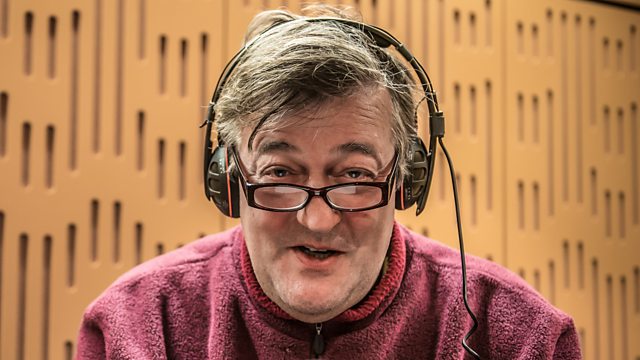
Order!
Does language order thought? What about the giving of orders? Why alphabetical order? David Sedaris helps Stephen Fry find out about linguistic order. But not in that order.
Order, Order! Settle down now, while the register is called. Abrahams? Atkins? Arnold? And reflect – why do we remember old classmates whose surnames occur at the beginning of the alphabet? According to a professor of economics at Colorado University, the initial of your surname (if you’re a man) may affect your life chances. The nearer A you are, the better. The professor’s surname is Zax.
The subject of order is by no means as easy as ABC. Alphabetical order as we know it occurs in languages used by 75% of humanity and is 5000 years old. This programme tries to discover why. And fails. Word order in sentences much simpler should be. Yet some rules - about, for example, the order in which adjectives occur in a sentence - are rather complicated. Why Jolly Green Giant and not Green Jolly Giant? And why ping pong, not pong ping?
All this enjoyable complexity comes before we even tackle the subject of orderliness. Writer David Sedaris, for example, is famous for pristine prose and a desire to have order in his daily surroundings. He goes to great length to achieve both, as Stephen finds out. But are they connected? Aren’t writers supposed to live disorderly lives?
The big question, which we leave till last in our running order, is how does language order thought? A psycho-linguist explains.
Oh yes, don’t forget the giving of orders, and the role of the exclamation mark. We meet a journalist and editor who told her staff not to use them for a month. It was harder than she imagined!
Producer Nick Baker/Testbed Productions
Last on
Broadcasts
- Tue 6 Aug 2019 09:00���˿��� Radio 4
- Tue 6 Aug 2019 21:30���˿��� Radio 4
